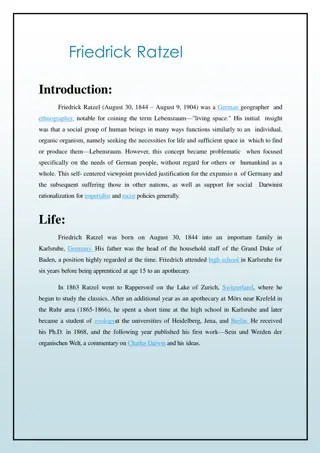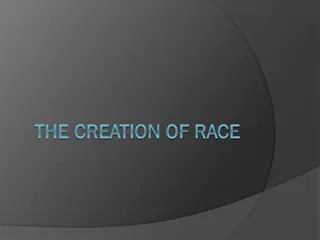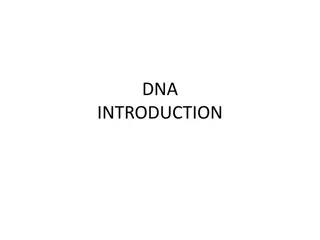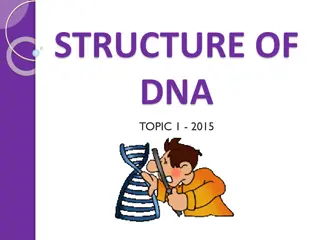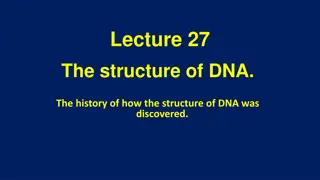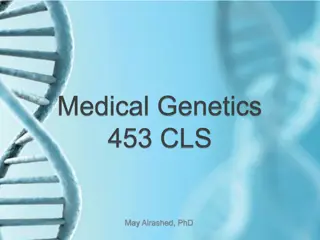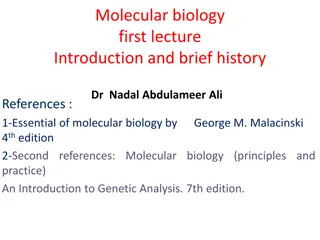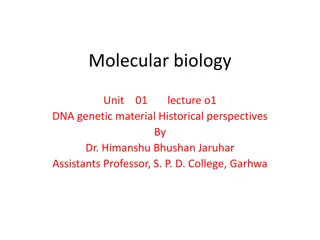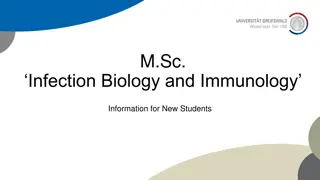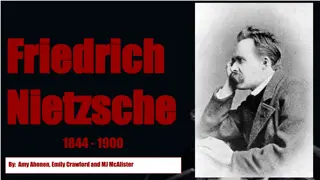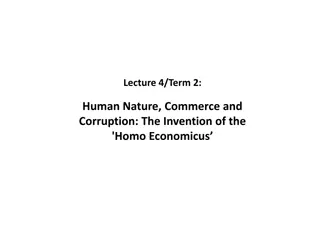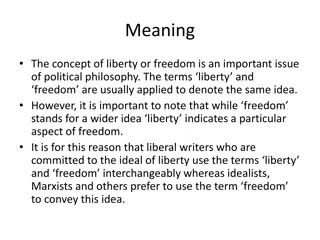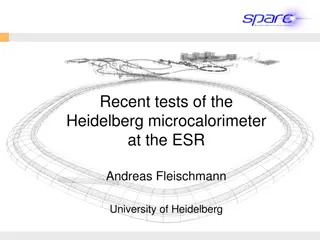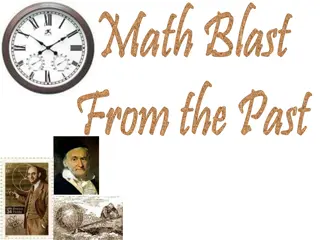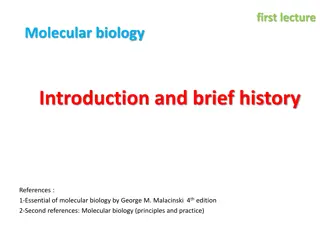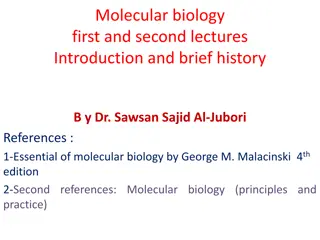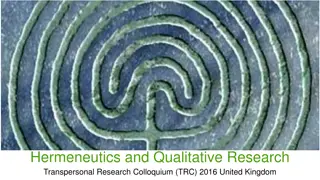Friedrich Ratzel: German Geographer and Ethnographer
Friedrich Ratzel, a prominent German geographer and ethnographer, introduced the concept of Lebensraum, emphasizing the importance of living space for social groups akin to organic organisms. His work was marked by a self-centered viewpoint that rationalized imperialist and racist policies. Ratzel's
0 views • 12 slides
Exploring the History of Race Classification and Racial Categories
Delve into the historical context of race classification through the lens of notable figures like David Hume and Johann Friedrich Blumenbach. Uncover the evolution of racial categories in U.S. Census data, from 1850 to 1930. Reflect on the implications of these classifications in society and learn a
0 views • 19 slides
Understanding Marxism and Capitalism
Marxism is a body of social, political, and economic thought derived from the works of Karl Marx and Friedrich Engels, focusing on the analysis of capitalism. Capitalism is an economic system where private individuals own goods and services based on market supply and demand. The purest form of capit
0 views • 25 slides
Insights on Cotton Mills and Workers' Conditions in English Language Component 2 Reading Paper
The reading section of English Language Component 2 paper delves into the conditions of workers, particularly young girls, in cotton mills. Robin Pagna's article sheds light on the harsh reality faced by these workers, while Friedrich Engels' text provides further insight into the detrimental effect
1 views • 22 slides
Advanced Methods of Interpretation: Hermeneutics and Structuralism Lecture at Masaryk University
Understanding interpretation in cultural sociology through hermeneutics and structuralism is explored in Lecture III by Dr. Werner Binder at Masaryk University. The lecture delves into the art of interpretation, focusing on classical hermeneutics, Friedrich Schleiermacher's romantic hermeneutics, an
1 views • 37 slides
Overview of Translation Theories from Dryden to Derrida
The introduction of "Theories of Translation: An Anthology of Essays from Dryden to Derrida" offers a historical insight into translation theories. John Dryden emphasizes the importance of being proficient in both languages for translation. He categorizes translation into three types: metaphrase, pa
2 views • 25 slides
Understanding DNA: A Journey from Friedrich Miescher to Genes and Function
DNA, the hereditary basis of life, was first discovered by Friedrich Miescher in 1869. It consists of chromosomes, plasmids, and organellar DNA, collectively known as the genome. Genes, sequences of DNA, encode proteins and RNA, essential for an organism's functions. The genome is divided into chrom
0 views • 17 slides
Evolution of DNA Discovery and Understanding Through History
Delve into the captivating history of DNA, from its discovery by Friedrich Miescher in 1869 to the groundbreaking research of Rosalind Franklin in 1953. Follow the journey of scientific pioneers as they unraveled the mysteries of DNA's structure, composition, and role in genetic information transfer
0 views • 33 slides
The Fascinating History of DNA Structure Discovery
Delve into the historical journey of uncovering the structure of DNA, starting from Johann Friedrich Miescher's isolation of nuclein in 1869 to Phoebus Levene's identification of nucleotides in 1930. Learn about key contributors like Albrecht Kossel and the significant breakthroughs that paved the w
1 views • 36 slides
Evolutionary Contributions of Prominent Scientists in the 19th Century
Charles Darwin, Gregor Mendel, Friedrich Miescher, Aristotle, and Carl Linnaeus were key figures in the 19th century who made significant contributions to the fields of evolution, genetics, DNA discovery, and taxonomy. Darwin proposed the theory of evolution and natural selection, Mendel established
0 views • 20 slides
Introduction to Molecular Biology: Historical Insights and Key Experiments
Molecular biology is a field that focuses on understanding the behaviors of macromolecules like DNA, RNA, and proteins. This summary discusses the history of molecular biology, including the work of Friedrich Miescher and Griffith's experiment, which demonstrated the transfer of genetic material. Th
0 views • 19 slides
Historical Perspectives on DNA as Genetic Material: From Mendelism to Griffith's Experiment
Mendelism's rediscovery in 1900 laid the groundwork for understanding heredity, leading to the association of Mendel's factors with chromosomes. The quest to identify the chemical nature of heredity began with Friedrich Miescher's discovery of nucleic acid in 1869. Despite initial confusion between
0 views • 16 slides
The Continued Struggle and Foreign Support in the American Revolution
The American Revolution persisted with the support of allies like France and Spain, as well as key foreign figures such as Marquis de Lafayette and Friedrich von Steuben. Despite facing hardships like the harsh winter at Valley Forge and financial struggles, the Americans persevered with the aid of
0 views • 6 slides
Master's Program in Infection Biology and Immunology at University of Greifswald
The Master's Program in Infection Biology and Immunology at University of Greifswald offers a comprehensive curriculum with access to state-of-the-art facilities and institutes such as the Friedrich-Loeffler-Institut and the Helmholtz Institute for One Health. The program includes working groups in
0 views • 26 slides
Friedrich Nietzsche's Genealogy of Morals: Uncovering the Evolution of Moral Values
Friedrich Nietzsche critiques traditional philosophy for overlooking the historical development of moral concepts. He argues that moral judgments were initially based on strength and power, later evolving into the dichotomy of master and slave morality. By tracing the genealogy of moral terms, Nietz
0 views • 10 slides
Friedrich Nietzsche - Philosopher and Thinker Extraordinaire
Friedrich Nietzsche, a renowned German philosopher, cultural critic, and essayist, challenged traditional Western morality and Christian beliefs. He advocated for personal reflection in philosophy, rejected societal norms, and introduced existentialist ideas that emphasized individual freedom and re
0 views • 10 slides
The Evolution of Liberal Economic Thought: Friedrich Hayek and Adam Smith
The lecture delves into the concept of 'Homo Economicus' and the ideas of Friedrich Hayek and Adam Smith regarding individualism, liberalism, and economic freedom. It discusses how Hayek praised Smith's contribution to liberalism and the significance of securing individual freedom. The Acts of Union
0 views • 20 slides
Exploring the Concept of Freedom and Liberty in Political Philosophy
The concept of liberty and freedom holds significant importance in political philosophy. While often used interchangeably, liberty signifies a specific aspect of freedom. Freedom encompasses the quality and condition of human beings, distinguishing them from other living beings. It involves the cont
0 views • 13 slides
Recent Tests of Heidelberg Microcalorimeter and New National Detector Laboratory Initiatives
Recent tests of the Heidelberg microcalorimeter at the ESR Andreas Fleischmann University of Heidelberg showcase advancements in X-ray photon research with metallic magnetic calorimeters. Additionally, a new initiative is discussed towards establishing a National Detector Laboratory by Thomas Stöhl
0 views • 15 slides
The Remarkable Life and Legacy of Mathematician Carl Friedrich Gauss
Carl Friedrich Gauss was a prodigy who made significant contributions to mathematics at a very young age. He famously solved the problem of adding numbers from 1 to 100 quickly by recognizing a pattern. Despite personal tragedies, including the loss of his first wife and child, Gauss continued to ex
0 views • 15 slides
Exploring Molecular Biology: History and Key Experiments
Delve into the world of molecular biology through a historical journey, from Friedrich Miescher's discovery of nucleic acids to Griffith's groundbreaking experiments on genetic transformation. Witness the pivotal Avery-MacLeod-McCarty experiment that solidified DNA as the genetic material. Uncover t
0 views • 16 slides
History and Significance of Molecular Biology Discoveries
Introduction to molecular biology focusing on key historical breakthroughs such as the identification of nucleic acids by Friedrich Miescher, Griffith's experiment on genetic material transfer in bacteria, and the Avery-MacLeod-McCarty experiment proving DNA as the genetic material. These pivotal mo
0 views • 19 slides
Understanding Hermeneutics and Qualitative Research: TRC 2016 Insights
Delve into the world of hermeneutics with insights from the Transpersonal Research Colloquium 2016 in the UK. Explore the origins, key figures like Friedrich Schleiermacher and Hans-Georg Gadamer, and the concept of intuitive exegesis. Discover how hermeneutics shapes interpretation, communication,
0 views • 13 slides
